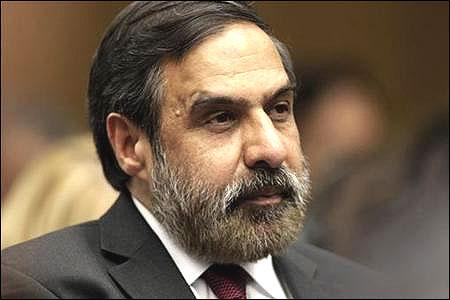
It is a question of clarity and not review. As we move towards its implementation, and investors engage and invest, more clarifications are required. This will happen through the guidelines. We are very clear that we are going to make it easy for investors to come.
For example, in IKEA's case, their chairman was more than satisfied when we met and the announcement was thus made.
But IKEA did indicate in its application that it wants relaxation in the number of years for calculating the quantum of sourcing.
Those things will get addressed in the guidelines. We do not have a rigid policy, where industry does not have space to move. We will ensure there is ease of doing business with India.
The plan to allow FDI in multi-brand retail trade is still stuck in your ministry.
It is not. We have moved a proposal and got it approved by the Cabinet. We only have to get it implemented and notified. It was put on hold because of the political opposition, much of which was partisan politics.
Are you still hopeful of rolling it out?
Well, the decision was never reversed. We have undertaken extensive consultations as a part of strengthening the consensus and it will happen because there is a strong consensus in favour of it. The stakeholders are not just the states.
Stake-holders are farmers, small retailers, industry associations and small and medium enterprises. It is a policy with a distinct Indian signature. We are clear that it will help in transforming an agrarian economy, benefit farmers and generate employment.
When do you, then, expect these consultations to get over and get the FDI policy on multi-brand retail actually notified?
I am not confining myself to any one issue. We have also done it in single-brand retail FDI policy. We need FDI in all sectors. I am not a single-issue minister and I am looking at many other areas. This is not the only issue which I am seeing. These things will keep happening.
Indian exports started the financial year on a poor note. Do you still stand by your target of a 20 per cent rise over last year?
The target is important, because if you do not have an objective, you are not moving towards achieving what we have as the goal of the Foreign Trade Policy (FTP), which is doubling India's share in global trade.
We do get affected when there are negative developments elsewhere in the world and the contraction of demand in all the major markets.
The commerce secretary and the director-general of foreign trade are touring our five top export destinations and the purpose is to have a quick review.
When do you see a turnaround in exports?
The benefits of the FTP will kick in soon. We do hope the situation will be turned around by September-October. This time, the contraction has not been that sharp, though the June numbers have been worrisome. We have done what was within our reach. The government is mindful of the situation.
What is happening with the National Manufacturing Policy? It seems the National Manufacturing and Investment Zones (NMIZ) have failed to attract investors.
This has been the most important policy roll-out, which has resonated globally. It has been the government's priority. We have already announced eight NMIZs and they are being developed in partnership with the states. The master-plan of many such zones have been completed and states are in final stages of notification for the land.
The agreements have been finalised between the Centre and states and guidelines will be notified soon. It is a process which takes time. Investors are aware where these zones are coming up. Some have moved in. States are welcoming it but the issue is of land.
Photograph: Denis Balibouse/Reuters